The majority of atopic dermatitis remedies are treatments that you apply directly to the skin, like steroid creams or ointments. It is important to use an ointment and not lotion in this area, as lotions can sometimes contain drying agents that might make the symptoms worse.
Why Do My Nipples Itch?
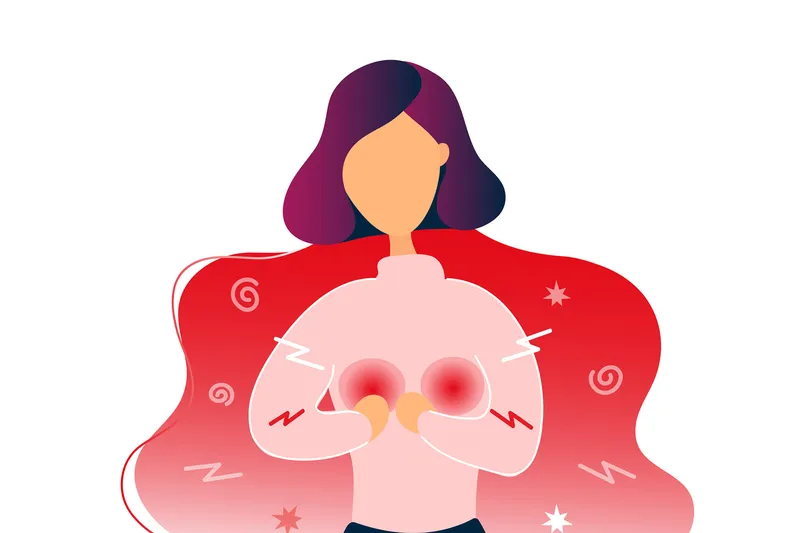
Itchy nipples are sheer misery. Not only are they awkward to scratch during the daytime, but at nighttime, they make sleeping nearly impossible. If you’re clawing at your chest at 3 a.m. and wondering what in the world is going on with your nipples, the good news is that, in most cases, it’s nothing serious. In rare cases, itchy nipples is a sign of something more serious – and we’ll get to that – but like I said, it’s rare. So first let’s talk about what’s more likely to be going on.
Atopic Dermatitis
Atopic dermatitis, also known as eczema, is the most common cause of itchy nipples. With this condition, itching is almost always present and can be severe. The itching may start even before you’re able to see a rash. The rash can include small blisters with oozing or crusting. If you keep scratching, you could open the skin to infections or create thickened areas from constant inflammation and irritation.
Atopic dermatitis can appear in women and men of all ages. Since it’s thought to be due to a hypersensitivity reaction, you may be more prone to develop it if you have a personal or family history of allergies, asthma, or hay fever.
Environmental triggers that can prompt atopic dermatitis to flare up can include:
- Dry skin
- Prolonged contact with water
- Dyes or scents added to skin products
- Cleaning products
- Stress
Doctors usually diagnose atopic dermatitis by doing a physical exam and asking about your health history. If needed, they can also do a skin biopsy to rule out other causes.
The majority of atopic dermatitis remedies are treatments that you apply directly to the skin, like steroid creams or ointments. It is important to use an ointment and not lotion in this area, as lotions can sometimes contain drying agents that might make the symptoms worse.
Topical ointments that might help include:
When your itching is severe or there is a known allergic trigger, antihistamine pills can help. Hydrocortisone cream is also an option.
There are also self-care and preventative strategies that can ease your symptoms. Your best strategy for getting rid of atopic dermatitis is to avoid triggers, but you should also do what you can to keep moisture in your skin. For instance, don’t use drying soaps, and don’t take long, hot baths. Once out of the bath or shower, apply an ointment to the area.
As I mentioned, there is a more serious cause of itchy nipples, and it’s important to know the signs:
Paget’s Disease
Paget’s disease is a rare form of breast cancer that can involve both the nipple and the areola (the colored area that encircles the raised nipple). One of the first symptoms of Paget’s disease can be an itching or burning sensation of the nipple or areola.
In Paget’s disease, the itching is often accompanied by a crusty rash. The scaly rash does not get better with topical creams. More advanced cancers will form open sores and might have nipple discharge. Paget’s is most often found in just one breast and is typically found in women between the ages of 50 and 60.
Doctors diagnose Paget’s disease with a breast exam and a mammogram. They might also do a biopsy of the nipple. Any breast lumps would be biopsied as well. The treatment for Paget’s disease is breast surgery, either removing the whole breast (known as mastectomy) or removing just the diseased part of the breast.
If you have any of the symptoms of Paget’s, contact your doctor for an evaluation.
In general, though, itchy nipples are also not something you need to run to the ER for at the first twinge of discomfort. Try the topical ointments and antihistamines mentioned above, and if the symptoms don’t get better or a rash develops, then follow up with your doctor to get things thoroughly checked out.
WebMD Blog
© 2020 WebMD, LLC. All rights reserved.
Blog Topics:
- Breast Health
About the Author
Heather Rupe, DO, is a board-certified OB/GYN in private practice in Franklin, TN, and serves as the vice chief of staff at Williamson Medical Center. She is the co-author of The Pregnancy Companion: A Faith-Filled Guide for Your Journey to Motherhood and The Baby Companion: A Faith-Filled Guide for Your Journey through Baby’s First Year.
More from the Women’s Health Blog

Can a Vagina Be Too Big?
Heather Rupe, DO April 13, 2021
Childbirth, weight gain, hormonal changes, and more can have an effect on the contours of the vagina over time, but is this a problem?
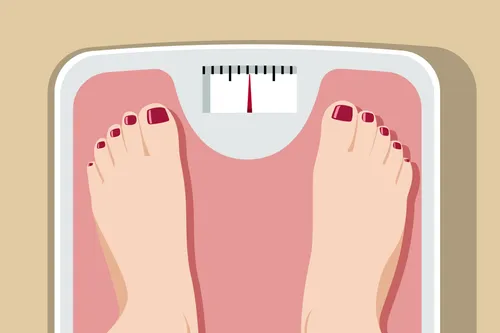
Gaining Weight in Your 40s? Tips From a GYN
Heather Rupe, DO January 29, 2021
If what you used to do to keep your weight in check isn’t working anymore, there’s a reason. Learn how to stay healthy as you age.
Latest Blog Posts on WebMD
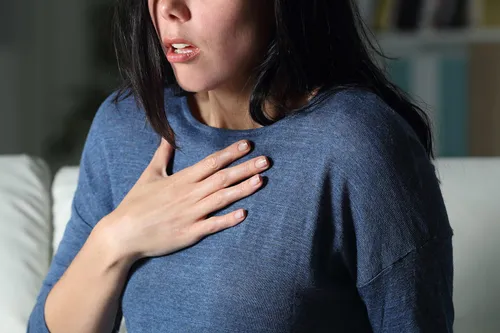
Understanding Different Types of MS Pain: Part 1
Mayteé Ramos February 9, 2023
I heard once from a doctor that MS doesn’t cause any pain. Really? I’m not sure where he got that from but, evidently, he had no idea, he was clueless. And this was .
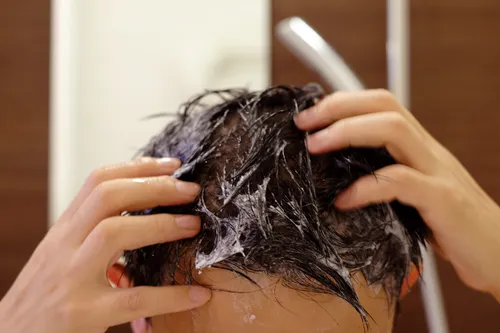
The Diagnosis Process: The Psoriasis Enigma
Richard Seiden February 9, 2023
For many years until the 1970s, psoriasis was considered a skin disease and nothing more. Often, it was misdiagnosed as something else (e.g., eczema or leprosy) and .
Why Are My Nipples Itchy? 12 Possible Causes

Lots of things can make your nipples itchy. They’re sensitive in general. They also stick out, and they can get irritated from friction, eczema, breastfeeding, or pregnancy. Rarely, itchy nipples can be a sign of a more serious condition. Even if your urge to scratch is great, the problem is usually easy to treat. If you’ve been using over-the-counter products for a couple of weeks and the itch isn’t gone, check with your doctor.

Dry Weather
2/13
Cold, dry weather can lead to major itching all over your body, including on the breasts and nipples. If that’s the cause, your nipples may look raw or chafed. Keep baths and showers to under 10 minutes. Use lukewarm water, since hot water washes away essential oils and dries out your skin even more. Gently pat your skin with a towel until it’s almost dry, and moisturize with a thick cream or ointment. Run a humidifier to add moisture.
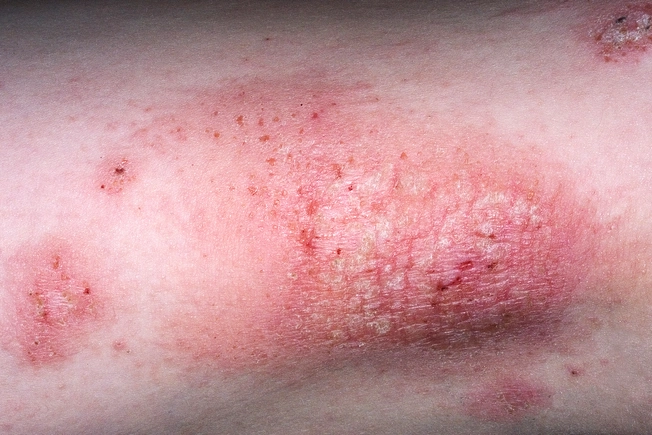
Eczema
3/13
It can cause a crusty rash on your nipples and the flat part around it, especially if you’ve had eczema before. Use a thick moisturizer with ceramides, a waxy ingredient that helps heal the skin. A topical steroid cream like hydrocortisone can help with swelling and itching. Your doctor can prescribe stronger prescription ointments. See them right away if you notice any oozing or tenderness, which could be a sign of infection.
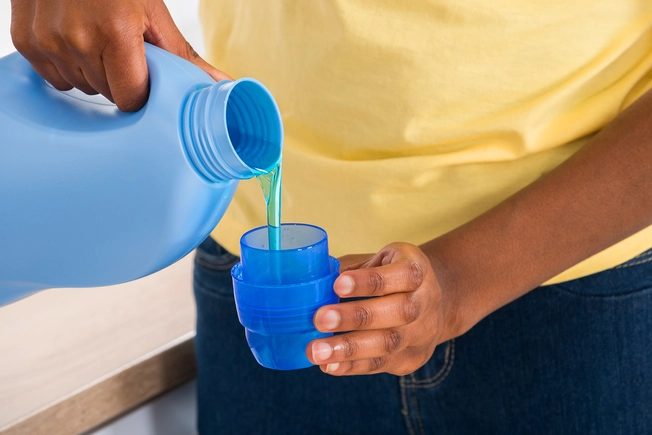
Soap
4/13
Your new soap, lotion, or laundry detergent could be behind your itchy nipples. The chemicals in many cleansing products can cause a rash called contact dermatitis. It can show up as itchy red patches on your body. Switch to soaps and cleansers that are hypoallergenic, unscented, and free of dyes, and you’ll know if that’s the problem.

Undergarments
5/13
Your breasts and nipples may be reacting to the elastic or dye used to make your bra or lingerie. Contact dermatitis can cause redness and itching on the areas of the skin that touch the fabric, like your nipples. If you’ve recently started wearing a new bra, go back to your old one for a while and see if the itch goes away.
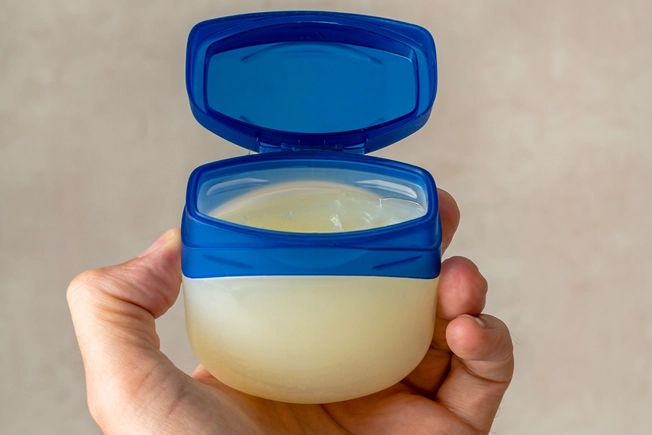
Friction
6/13
Your nipples can chafe when they rub against clothing while you exercise or because your bra is too tight. It’s usually more painful than itchy, but some women say the friction can feel like itching or burning. Apply petroleum jelly to the area before workouts to protect it from irritation, and make sure your bra fits well.
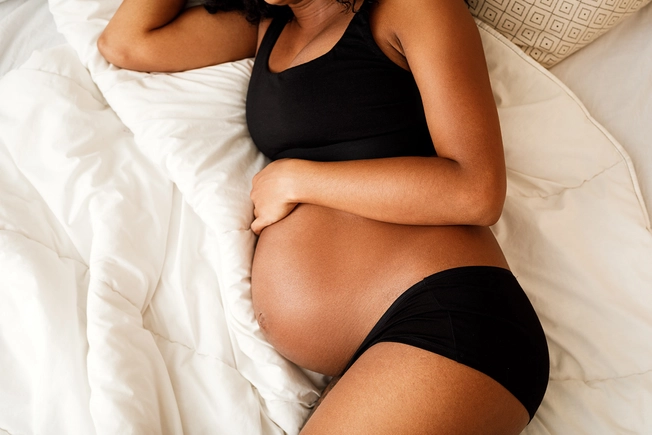
Pregnancy
7/13
Weight gain, morning sickness, hormone swings, and . itchy nipples? Yep, add that to the list of symptoms of pregnancy. Blame it on hormone changes and skin stretching as your breasts and nipples expand to get ready for a nursing baby. Cocoa butter, coconut oil, or a lanolin ointment rubbed on the nipples can help lessen the itch.
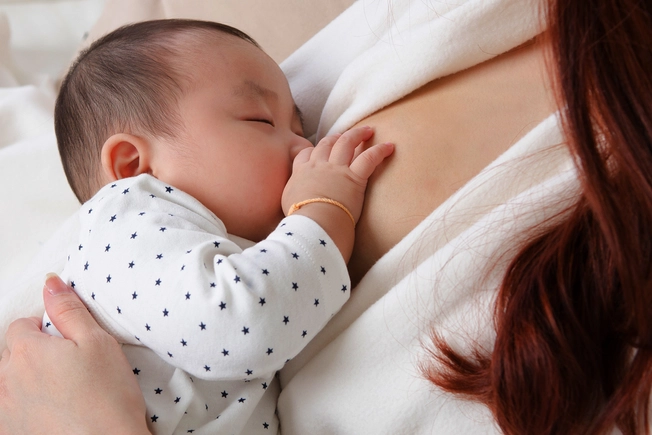
Breastfeeding
8/13
Milk residue, plugged milk ducts, and problems with your baby latching on during feedings all can make nipples itchy and sore. It’s important to keep the area clean and dry and to continue to pump or nurse. Lanolin ointment and silicone gel pads cooled in the refrigerator can help ease your discomfort.
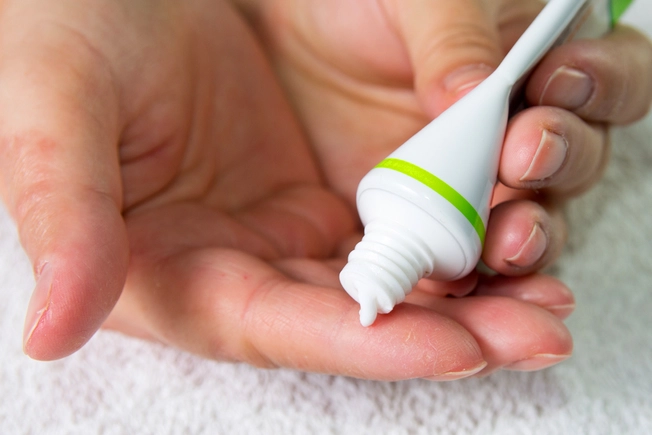
Thrush
9/13
If you’re breastfeeding, and if your nipples and surrounding area are not only itchy but shiny or flaky, and you feel sharp pain while nursing, see your doctor. Those are signs of thrush, a fungal infection. Your doctor may prescribe an antifungal cream to put on your nipples and breasts, as well as a mild antifungal medication you take by mouth.

Menopause
10/13
This stage of your life can make your skin thinner, drier, and more easily irritated. Blame it on your hormones going up and down and on lower levels of estrogen. Your body makes less oil, so it’s harder for your skin to retain moisture. The itch can strike just about anywhere on the body, including the vagina and nipples. Fight the dryness by using mild cleansers, moisturizing often, and taking fewer hot showers.
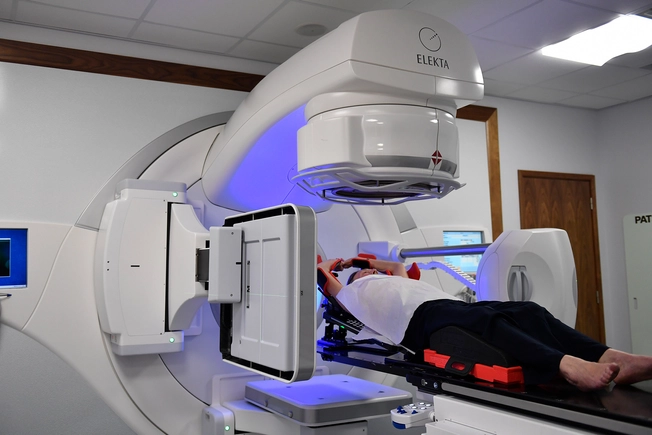
Radiation
11/13
Treatment for breast cancer can lead to severe itching in the breasts and nipples, even long after it ends. Radiation kills skin cells and causes dryness, burning, and itching as the skin peels off. Massage the area with an ice cube, wear soft, loose-fitting clothes, and drink plenty of fluids. Oral antihistamines can help. Your doctor also can prescribe a corticosteroid to rub on the skin.

Paget’s Disease
12/13
This rare form of breast cancer starts in the breast ducts and spreads to the nipple and nearby area. It can look a lot like eczema, with crusted, scaly, and itchy skin. But it often affects just one nipple, and you may also see blood or yellow discharge. If the rash doesn’t respond to eczema treatments, you may need a biopsy of a tissue sample to be sure. Paget’s disease usually is treated with surgery, followed by radiation.

Benign Tumor
13/13
Sometimes, a noncancerous tumor in the breast duct can cause an itchy, crusted nipple. You may feel a small lump or notice a clear or bloody discharge from the nipple. To make the diagnosis, your doctor may X-ray your breast duct or order an ultrasound, mammogram, or biopsy. The treatment is usually surgery.
Show Sources
IMAGES PROVIDED BY:
1) Rawpixel / Getty Images
2) eag1e / Getty Images
3) Scott Camazine / Science Source
4) AndreyPopov / Getty Images
5) IKvyatkovskaya / Getty Images
6) lenshiker / Getty Images
7) Youngoldman / Getty Images
8) szeyuen / Getty Images
9) Marina Vol / Getty Images
10) yacobchuk / Getty Images
11) Dr. P. Marazzi / Science Source
12) Clinical Photography, Central Manchester University Hospitals NHS Foundation Trust, UK / Science Source
13) Gustoimages / Getty Images
Lauren Eckert Ploch, MD, dermatologist, Augusta, GA.
Meghan Feely, MD, dermatologist, New York.
Leena Nathan, MD, assistant clinical professor, UCLA department of obstetrics and gynecology.
La Leche League International: “Is thrush causing my sore nipples?”
Oregon Health & Science University: “Loving Your Skin Through Menopause.”
National Cancer Institute: “Causes of Pruritus in Cancer Patients.”
University of New Mexico Comprehensive Cancer Center: “Itching.”
American Cancer Society: “Paget Disease of the Nipple,” “Intraductal Papillomas of the Breast.”
Why Are My Nipples Itchy? 12 Possible Causes

Lots of things can make your nipples itchy. They’re sensitive in general. They also stick out, and they can get irritated from friction, eczema, breastfeeding, or pregnancy. Rarely, itchy nipples can be a sign of a more serious condition. Even if your urge to scratch is great, the problem is usually easy to treat. If you’ve been using over-the-counter products for a couple of weeks and the itch isn’t gone, check with your doctor.
Dry Weather

Cold, dry weather can lead to major itching all over your body, including on the breasts and nipples. If that’s the cause, your nipples may look raw or chafed. Keep baths and showers to under 10 minutes. Use lukewarm water, since hot water washes away essential oils and dries out your skin even more. Gently pat your skin with a towel until it’s almost dry, and moisturize with a thick cream or ointment. Run a humidifier to add moisture.
Eczema

It can cause a crusty rash on your nipples and the flat part around it, especially if you’ve had eczema before. Use a thick moisturizer with ceramides, a waxy ingredient that helps heal the skin. A topical steroid cream like hydrocortisone can help with swelling and itching. Your doctor can prescribe stronger prescription ointments. See them right away if you notice any oozing or tenderness, which could be a sign of infection.
Soap

Your new soap, lotion, or laundry detergent could be behind your itchy nipples. The chemicals in many cleansing products can cause a rash called contact dermatitis. It can show up as itchy red patches on your body. Switch to soaps and cleansers that are hypoallergenic, unscented, and free of dyes, and you’ll know if that’s the problem.
Undergarments

Your breasts and nipples may be reacting to the elastic or dye used to make your bra or lingerie. Contact dermatitis can cause redness and itching on the areas of the skin that touch the fabric, like your nipples. If you’ve recently started wearing a new bra, go back to your old one for a while and see if the itch goes away.
Friction

Your nipples can chafe when they rub against clothing while you exercise or because your bra is too tight. It’s usually more painful than itchy, but some women say the friction can feel like itching or burning. Apply petroleum jelly to the area before workouts to protect it from irritation, and make sure your bra fits well.
Pregnancy

Weight gain, morning sickness, hormone swings, and . itchy nipples? Yep, add that to the list of symptoms of pregnancy. Blame it on hormone changes and skin stretching as your breasts and nipples expand to get ready for a nursing baby. Cocoa butter, coconut oil, or a lanolin ointment rubbed on the nipples can help lessen the itch.
Breastfeeding

Milk residue, plugged milk ducts, and problems with your baby latching on during feedings all can make nipples itchy and sore. It’s important to keep the area clean and dry and to continue to pump or nurse. Lanolin ointment and silicone gel pads cooled in the refrigerator can help ease your discomfort.
Thrush

If you’re breastfeeding, and if your nipples and surrounding area are not only itchy but shiny or flaky, and you feel sharp pain while nursing, see your doctor. Those are signs of thrush, a fungal infection. Your doctor may prescribe an antifungal cream to put on your nipples and breasts, as well as a mild antifungal medication you take by mouth.
Menopause

This stage of your life can make your skin thinner, drier, and more easily irritated. Blame it on your hormones going up and down and on lower levels of estrogen. Your body makes less oil, so it’s harder for your skin to retain moisture. The itch can strike just about anywhere on the body, including the vagina and nipples. Fight the dryness by using mild cleansers, moisturizing often, and taking fewer hot showers.
Radiation

Treatment for breast cancer can lead to severe itching in the breasts and nipples, even long after it ends. Radiation kills skin cells and causes dryness, burning, and itching as the skin peels off. Massage the area with an ice cube, wear soft, loose-fitting clothes, and drink plenty of fluids. Oral antihistamines can help. Your doctor also can prescribe a corticosteroid to rub on the skin.
Paget’s Disease

This rare form of breast cancer starts in the breast ducts and spreads to the nipple and nearby area. It can look a lot like eczema, with crusted, scaly, and itchy skin. But it often affects just one nipple, and you may also see blood or yellow discharge. If the rash doesn’t respond to eczema treatments, you may need a biopsy of a tissue sample to be sure. Paget’s disease usually is treated with surgery, followed by radiation.
Benign Tumor

Sometimes, a noncancerous tumor in the breast duct can cause an itchy, crusted nipple. You may feel a small lump or notice a clear or bloody discharge from the nipple. To make the diagnosis, your doctor may X-ray your breast duct or order an ultrasound, mammogram, or biopsy. The treatment is usually surgery.
Why Are My Nipples Itchy? 12 Possible Causes
IMAGES PROVIDED BY:
- Rawpixel / Getty Images
- eag1e / Getty Images
- Scott Camazine / Science Source
- AndreyPopov / Getty Images
- IKvyatkovskaya / Getty Images
- lenshiker / Getty Images
- Youngoldman / Getty Images
- szeyuen / Getty Images
- Marina Vol / Getty Images
- yacobchuk / Getty Images
- Dr. P. Marazzi / Science Source
- Clinical Photography, Central Manchester University Hospitals NHS Foundation Trust, UK / Science Source
- Gustoimages / Getty Images
- Lauren Eckert Ploch, MD, dermatologist, Augusta, GA.
- Meghan Feely, MD, dermatologist, New York.
- Leena Nathan, MD, assistant clinical professor, UCLA department of obstetrics and gynecology.
- La Leche League International: “Is thrush causing my sore nipples?”
- Oregon Health & Science University: “Loving Your Skin Through Menopause.”
- National Cancer Institute: “Causes of Pruritus in Cancer Patients.”
- University of New Mexico Comprehensive Cancer Center: “Itching.”
- American Cancer Society: “Paget Disease of the Nipple,” “Intraductal Papillomas of the Breast.”
This tool does not provide medical advice. See additional information:
THIS TOOL DOES NOT PROVIDE MEDICAL ADVICE. It is intended for general informational purposes only and does not address individual circumstances. It is not a substitute for professional medical advice, diagnosis or treatment and should not be relied on to make decisions about your health. Never ignore professional medical advice in seeking treatment because of something you have read on the MedicineNet Site. If you think you may have a medical emergency, immediately call your doctor or dial 911.
Health Solutions From Our Sponsors






